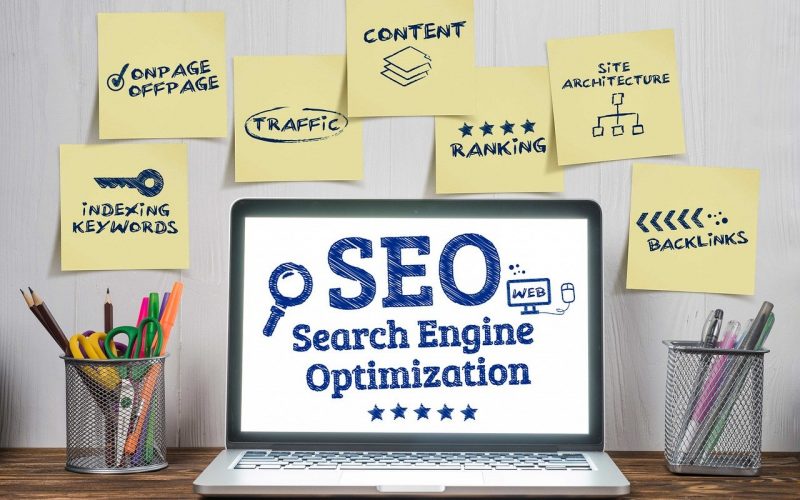Anyone who has a business with an online presence naturally wants to generate as many leads as possible with it. SEO is also crucial for blogs that generate income through advertising or affiliate programs. But how exactly does that work with SEO?
Why you need SEO
In the real world, SEO is best compared to the window of a store. The exposure, presentation, design and arrangement of items in a shop window signal to pedestrians that something is being sold. SEO could be described as the window dressing of a website. But the mechanisms are of course much more technical and complicated.
SEO is the solution but what is the problem?
What would be a good location for a store is a top first page placement on search engines. Less than 1% of all search engine users visit page 2 of the search results. So to get to the top and to the first page on Google, for example, you have to meet certain criteria. This is what is known as search engine optimization (SEO). How does it work?
How search engines analyze SEO
The algorithm of successful search engines like Google has never been published in full. It also changes regularly. But there are indications of what makes a good website good or bad from an SEO point of view. The following criteria are important.
Fast loading times, clean code
Clean code is easy to see for crawlers. There are certain standards that have simply become established because they are the easiest and fastest. User-friendliness is a top priority at Google.
Mobile user optimization
This criterion is in the same direction. But it has emerged as an independent criterion. Because if you want to build optimal websites for mobile phones, you do so in a separate form. You can see this in the address line in the form of an m., Which precedes the domain name.
High authority links, being linked yourself (backlinks)
Those who are relevant often have connections to other relevant websites. Either you list them yourself or, better yet, others link your own website.
Privacy
Data protection criteria also seem to be becoming more relevant for Google. This can also be seen at least in a basic way from the code of a website.
Sometimes Google searches for these criteria with the help of crawlers. In some cases, however, the relevance of a website is also derived from the length of time a particular user spent on a website. So if users are on a website for a long time, that’s a good sign for Google. However, we have not yet discussed the most important criterion.
Keywords
What are people looking for on Google looking for my product or content? An important question if you want more traffic on your own site. There are now many tools for researching and analyzing keywords. They provide you with different parameters: search volume, cost-per-click, paid difficulty, SEO difficulty are the most important.
The search volume shows you how many users are searching for a particular keyword each month. So there is of course a certain interest in covering keywords with high search volume. Since many want to do this, there is great competition for high volume keywords. This is expressed in the following criteria.
SEO Difficulty
First of all, this is the criterion that you should look at when starting to build a website. The higher the number, the more difficult it will be for a newcomer to get to page 1 of the results. Right from the start, without excessive effort and expense, you can bring your website to page 1 with a value of less than 30. You usually have to spend some money on this or you have to maintain the website over a longer period of time.
Paid Difficulty
If the SEO Difficulty is very high, there is still the option to have Google advertise itself. So you will automatically be ranked at the top. But since there is competition here too, there is the criterion of paid difficulty. If it is high, the costs increase, whereby the attention of the users decreases. The costs are expressed per click: Cost-per-Click (CPC).
How do I implement SEO on my own website?
You should implement and adhere to all of the above criteria. In order to become and stay relevant, it is advisable to keep bringing new content to your own website. Therefore, many sites have their own blog. This also offers the opportunity to cover keywords in breadth and depth. Users get the latest relevant information and Google notes the additional content positively. Old content shouldn’t just disappear into an archive. Ideally, they should be updated after six months.
Source: https://uk.jobsora.com/









